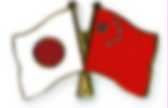

China criticizes Japan's protest over question of Okinawa sovereignty. Global Times game lets players re-take Diaoyus, kill Japanese online. The nationalist paper Global Times has launched an online game called "Recover the Diaoyu Islands", which takes visitors on a People's Liberation Army vessel on a mission to reassert Chinese sovereignty over the island chain also claimed by Japan.
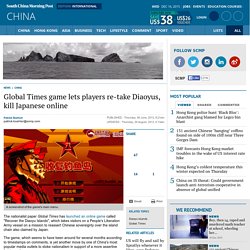
The game, which seems to have been around for several months according to timestamps on comments, is yet another move by one of China's most popular media outlets to stoke nationalism in support of a more assertive foreign policy. The island chain, also known as Senkaku in Japan, was handed to Japan by the US in a deal ending post-second world war administration of nearby Okinawa in 1972.
Last year, the Japanese government nationalised ownership of the formerly privately owned islands. In April, China's Foreign Minsitry declared sovereignty over the islands a "core interest", putting its claims on par with those for Taiwan. "The Chinese nation's determination to protect the Diaoyu Islands is unwavering! "
2013-04-03 Former Japanese prime minister to meet with Chinese leader this weekend - The Japan Times - Pale Moon. Abe offers China quake help ‹ Japan Today: Japan News and Discussion - Pale Moon. 2011-10-17 Japan Intercepting Record Numbers of Chinese Planes. Here’s some interesting information about how China is becoming increasingly assertive in the Western Pacific.
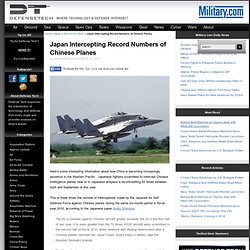
Japanese fighters scrambled to intercept Chinese intelligence planes near or in Japanese airspace a record-setting 83 times between April and September of this year. This is three times the number of interceptions made by the Japanse Air Self Defense Force against Chinese planes during the same six-month period in fiscal year 2010, according to the Japanese paper Asahi Shimbun. The 83 scrambles against Chinese aircraft greatly exceeds the 24 in the first half of last year. This comes as China is fielding its first aircraft carrier, anti-ship ballistic missiles, a ton of spy satellites and even MRAPs. Oh yeah, it’s also developing a stealth fighter and a host of new UAVs. All this is to ‘protect that which is ours,’ say Chinese leaders. Now, the Pentagon isn’t just turning a blind eye to this. 2011 Japan Sendai Earthquake, Chinese Netizen Reactions. Note from Fauna: A magnitude 8.9 earthquake hit northern Japan this afternoon at 2:46 pm, the largest earthquake in Japanese history.
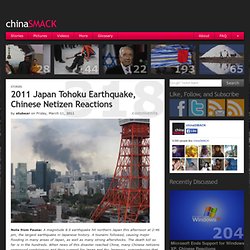
A tsunami followed, causing major flooding in many areas of Japan, as well as many strong aftershocks. The death toll so far is in the hundreds. When news of this disaster reached China, many Chinese netizens expressed condolences and their support for Japan and the Japanese, remembering that Japan eagerly helped the Chinese during China’s 2008 Sichuan Earthquake. At the same time, many others celebrated Japan’s misfortune, citing their grievances from past history. 2011-04-09 China expands ban for importing food, farm produce from Japan. Updated: 2011-04-09 11:29 (Xinhua) BEIJING - China has expanded a ban on imported food and farm produce from Japan, in both varieties and places of origin, amid growing fears of radiation contamination.

The General Administration of Quality Supervision, Inspection and Quarantine (AQSIQ) said in a statement published on Friday said that starting from April 8, China banned imports of foodstuffs, edible farm produce, along with fodders from 12 areas in Japan, comparing only five Japanese counties being blacklisted on March 24. AQSIQ demanded that importers of food, edible farm produce and fodders from other Japanese areas should also provide documents issued by Japanese government agencies while applying for quality inspection and quarantine at customhouses across China. 2010-10-14 Japan says release of China's Liu Xiaobo 'desirable' 14 October 2010Last updated at 06:58 Liu Xiaobo was virtually unknown in China before Friday Japanese Prime Minister Naoto Kan has said the release by China of the detained Nobel Peace Prize winner Liu Xiaobo is "desirable".
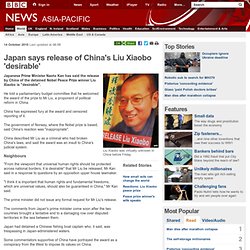
He told a parliamentary budget committee that he welcomed the award of the prize to Mr Liu, a proponent of political reform in China. China has expressed fury at the award and censored reporting of it. The government of Norway, where the Nobel prize is based, said China's reaction was "inappropriate".
2010.07.20 Dark wake-up call for Sino-Japanese ties. Dark wake-up call for Sino-Japanese ties By Iain Mills BEIJING - Harbin, provincial capital of Heilongjiang province in northeast China, is most famous for its European architecture and ice festival, when huge structures are carved out of frozen blocks and adorned with lights.
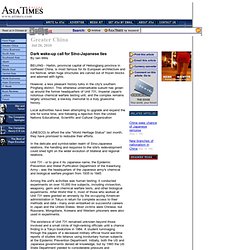
However, a less pleasant history lurks in the city's southern Pingfang district. This otherwise unremarkable suburb has grown up around the former headquarters of Unit 731, Imperial Japan's notorious chemical warfare testing unit, and the complex remains largely untouched, a low-key memorial to a truly gruesome history. Local authorities have been attempting to upgrade and expand the site for some time, and following a rejection from the United Nations Educational, Scientific and Cultural Organization (UNESCO) to afford the site "World Heritage Status" last month, they have promised to redouble their efforts. The unit's former headquarters remain essentially untouched. Notes 1. Editorial / The Paradox of Sino-Japanese Relations / Special Reports / Current Affairs. 1972.09.29 MOFA: Joint Communique of the Government of Japan and the Government of the People's Republic of China.
September 29, 1972 Prime Minister Kakuei Tanaka of Japan visited the People's Republic of China at the invitation of Premier of the State Council Chou En-lai of the People's Republic of China from September 25 to September 30, 1972.
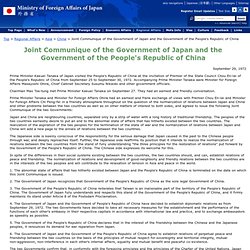
Accompanying Prime Minister Tanaka were Minister for Foreign Affairs Masayoshi Ohira, Chief Cabinet Secretary Susumu Nikaido and other government officials. Chairman Mao Tse-tung met Prime Minister Kakuei Tanaka on September 27. They had an earnest and friendly conversation. Sino-Japanese Studies. 2009-12-12 The DPJ’s management of China’s rise: from ‘hedging without reassurance’ to ‘reassurance without hedging’? Author: Yusuke Ishihara, ANU Japanese Defense Minister Toshimi Kitazawa and Chinese Defense Minister Liang Guanglie recently issued a joint press statement which outlines a list of practical collaborations planned between Chinese and Japanese militaries, following their bilateral defence meeting in Tokyo on November 21.
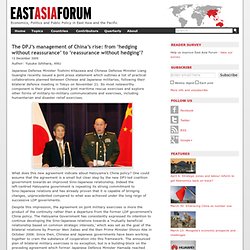
Its most noteworthy component is their plan to conduct joint maritime rescue exercises and explore other forms of military-to-military communications and exercises, including humanitarian and disaster relief exercises. 2010-01-05 A new start for Japan-China relations? Author: Reinhard Drifte After the Koizumi era, particularly since the beginning of the Hatoyama cabinet, Japan’s relations with China seem to be improving, and both sides have made encouraging statements.
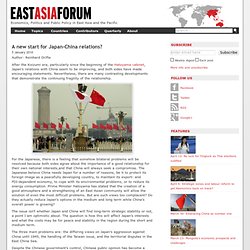
Nevertheless, there are many contrasting developments that demonstrate the continuing fragility of the relationship. For the Japanese, there is a feeling that somehow bilateral problems will be resolved because both sides agree about the importance of a good relationship for their own national interests,and that China will always seek a compromise. The Japanese believe China needs Japan for a number of reasons, be it to protect its foreign image as a peacefully developing country, to maintain its export- and FDI-dependent economy, to cope with its environmental problems, or to reduce its energy consumption.
2010-07-29 China and the lessons of the past. Author: Amy King, Oxford In its 50th year, the US-Japan Security Treaty has come under scrutiny in Washington and Tokyo.
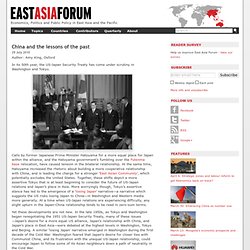
Calls by former Japanese Prime Minister Hatoyama for a more equal place for Japan within the alliance, and the Hatoyama government’s fumbling over the Futenma base relocation, have caused tension in the bilateral relationship. At the same time, Hatoyama increased the rhetoric about building a more cooperative relationship with China, and is leading the charge for a stronger ‘East Asian Community’, which potentially excludes the United States. 2010-09-21 Beijing's unwanted spat with Tokyo. Yan Xu is a graduate student from the Department of International Relations, Tsinghua University in Beijing. He is an intern at the Lowy Institute. For some China watchers, the recent spat between China and Japan over a boat collision near the Diaoyu/Senkaku Islands serves as a fresh evidence of Beijing's growing assertiveness.
Indeed, it sounds reasonable enough to argue that China, after surpassing Japan to become the world's second largest economy (a position Japan has occupied for more than 40 years), would act more arrogantly towards its eastern neighbour. However, I seriously doubt that Beijing would be glad to let its relationship with Tokyo freefall. In fact, since former Japanese PM Junichiro Koizumi stepped down in 2006, the two governments have made huge efforts to 'melt the ice' and made significant progress.
Incidents similar to the recent one have happened before in this highly disputed area, and in the past, both sides refrained from taking provocative actions. 2012-08-27 Japan blocks landing on disputed islands to defuse China tensions. 2012-08-27 Japan protests after man seizes flag from ambassador's car in Beijing. Japan protests after man seizes flag from ambassador's car in Beijing Image by: Gallo Images/Thinkstock.